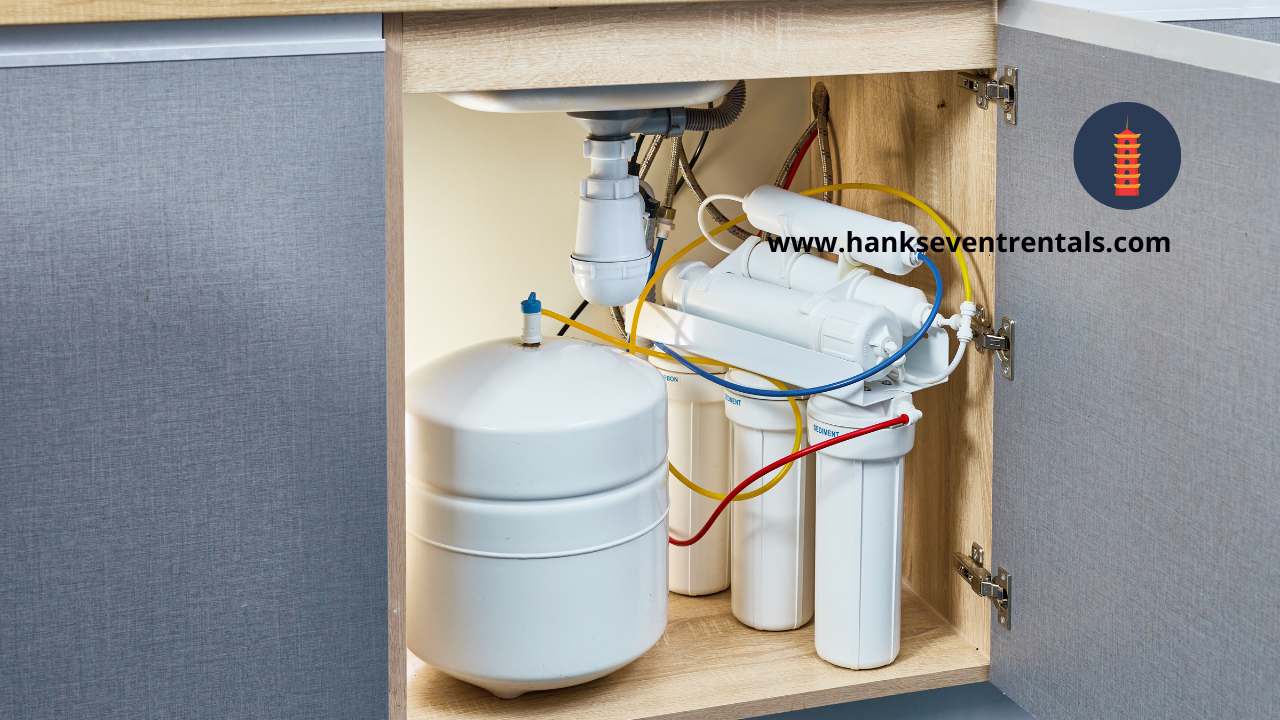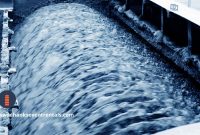Benefits of Installing a Whole House Water Filter and Softener System
1. Healthier Drinking Water for the Entire Family
Installing a whole house water filter and softener system provides a significant improvement in water quality, ensuring that every drop you drink is free from harmful chemicals, impurities, and contaminants. Tap water often contains elements such as chlorine, heavy metals, and sediments that can pose health risks over time. A whole house system effectively removes these unwanted substances, providing safe, clean, and healthy water for drinking and cooking.
For families, this means fewer concerns about exposure to contaminants and more confidence in the safety of their water supply. Unlike point-of-use filters that treat only specific faucets, a whole house system treats all the water entering the home, from your kitchen to your bathrooms, ensuring everyone benefits.
2. Softer Skin and Hair
Have you ever noticed how your skin feels dry and your hair becomes brittle after a shower? The reason could be hard water, which is full of minerals like calcium and magnesium. These minerals can strip moisture away, leaving skin feeling rough and hair looking lifeless.
A whole house water softener works by reducing the hardness of water, making it gentler on your skin and hair. This leads to better moisture retention, softer skin, and shinier hair, making every shower feel like a spa experience. With fewer harsh minerals affecting your skin, conditions like dryness or irritation can significantly improve, which is particularly helpful for people with sensitive skin or eczema.
3. Extended Appliance Lifespan
Hard water can wreak havoc on your household appliances, such as dishwashers, washing machines, and water heaters. Mineral buildup caused by hard water often leads to clogs and reduced efficiency. Over time, this accumulation can cause appliances to break down prematurely, costing you hundreds, if not thousands, in repairs and replacements.
Installing a whole house water filter and softener system prevents scale buildup inside appliances by reducing the calcium and magnesium content. This extends the lifespan of your appliances, saves money on energy costs, and reduces the need for frequent maintenance. Additionally, your washing machine will work better, allowing detergent to foam effectively, which results in cleaner clothes with fewer detergent residues.
4. Improved Water Taste and Odor
Unfiltered tap water can have an unpleasant taste or odor due to chlorine or other impurities. A whole house water filtration system effectively removes these contaminants, leaving your water tasting fresher and odor-free. This makes it easier to stay hydrated and improves the flavor of drinks like tea and coffee.
Filtered water can also make a noticeable difference in cooking. Foods cooked with pure water often taste better because they’re free from the chlorine and chemicals present in unfiltered tap water. It’s a small change that makes a big impact on the quality of your meals.
5. Reduced Soap Scum and Cleaner Surfaces
Mineral deposits in hard water can leave residue on your sinks, bathtubs, and faucets, resulting in that stubborn white soap scum that’s so hard to clean. This residue not only looks unappealing but also increases your cleaning time. Installing a whole house water softener ensures that these minerals are removed before the water flows through your pipes, making it much easier to keep your bathroom and kitchen surfaces spotless.
The result is less cleaning, fewer harsh chemical cleaners required, and sparkling, scum-free surfaces. By making your household chores easier, you have more time to spend on the things you enjoy.
6. Energy Efficiency and Cost Savings
Hard water deposits inside water heaters and other appliances can lead to a significant decrease in their efficiency. This results in appliances using more energy to heat water, thus raising your utility bills. By using a whole house water filter and softener system, you can eliminate scale buildup, improving the efficiency of water heaters and saving you money on energy costs.
Water heaters with softened water don’t need to work as hard to heat the water, which means they consume less electricity or gas. Over time, this can add up to substantial savings, making the initial investment in a whole house water system well worth it.
7. Protects Your Plumbing System
Mineral buildup doesn’t just affect your appliances; it also affects your pipes. Hard water deposits accumulate over time, which can lead to clogs, reduced water flow, and even damage to your plumbing system. Such problems can be costly to repair and may require extensive work to fix.
A whole house water softener helps prevent these issues by softening the water before it flows through your pipes. This reduces scale buildup and keeps your plumbing system in good condition, minimizing the likelihood of clogs and extending the life of your home’s piping.
8. Cleaner and Softer Laundry
If you notice that your clothes feel rough after washing or that colors fade quickly, hard water may be the culprit. The minerals in hard water can get trapped in the fabric, making it feel stiff and causing colors to dull. Additionally, detergents often struggle to lather properly with hard water, resulting in clothes that aren’t completely clean.
With a whole house water filter and softener system, your laundry comes out feeling softer, colors stay vibrant longer, and your clothes last longer. The water softener ensures that detergents dissolve fully, allowing them to work more effectively. Softer water also means that you can use less detergent, which is gentler on both the fabric and your skin.
9. Eco-Friendly Living
Installing a whole house water filter and softener system is an eco-friendly decision. By filtering out harmful contaminants, you reduce your reliance on bottled water, which decreases plastic waste and the carbon footprint associated with manufacturing and transporting plastic bottles. It’s a more sustainable option for both your home and the environment.
Moreover, when your appliances and plumbing work efficiently, you use less energy and water, contributing to environmental conservation. Using fewer harsh cleaning agents also means fewer chemicals end up in the waterways, which positively impacts the planet.
10. Convenience of Whole House Coverage
Unlike point-of-use filters that only purify water at specific taps, a whole house water filter and softener system ensures that every faucet in your home delivers clean, softened water. Whether you’re showering, doing dishes, or filling up your humidifier, you can trust that the water is clean and free of impurities.
The convenience of whole house coverage is unmatched. It simplifies your life, eliminating the need to install multiple filters throughout your home and ensuring consistent water quality from every source.
11. Minimize Scale Buildup in Fixtures
Another fantastic benefit of a whole house water filter and softener system is the reduction of mineral scale buildup on fixtures, such as showerheads, faucets, and toilets. Hard water deposits can lead to reduced water flow and unsightly stains on your fixtures. With soft water, these problems are greatly minimized.
Not only will your fixtures last longer, but they’ll also require less cleaning and maintenance, helping keep your bathroom and kitchen sparkling clean without constant scrubbing or the use of harsh chemicals.
12. Enhanced Shower Experience
Imagine stepping into a shower where the water feels softer and lathers effortlessly. A whole house water softener can transform your showering experience, making it more luxurious and enjoyable. Since softened water allows soap to lather better, you’ll need less shampoo and body wash, ultimately reducing your expenses.
Furthermore, without harsh minerals stripping your skin and hair, your shower experience will leave you feeling truly refreshed. This improvement in water quality is particularly beneficial if you have a family member with sensitive skin conditions, such as eczema or psoriasis.
13. Saving on Detergents and Soaps
With softened water, soaps and detergents work more effectively. You’ll notice that you need less dish soap, laundry detergent, and body wash to achieve the same results compared to hard water. This is because minerals in hard water can interfere with soap’s cleaning ability, requiring you to use more.
Over time, the reduced need for cleaning products can lead to significant cost savings, especially for larger households. Using fewer products also means reducing exposure to potentially harsh chemicals, which benefits your family’s health and the environment.
14. No More Water Spots
Water spots on dishes, glassware, and shower doors are a common problem with hard water. These spots are caused by mineral residues left behind after the water evaporates. By installing a whole house water filter and softener, you can eliminate these unsightly spots for good.
Your glasses and dishes will sparkle right out of the dishwasher, and you won’t need to spend extra time drying or polishing them. This also means that the surfaces in your bathroom and kitchen stay cleaner for longer, reducing the time and effort you need to spend on household chores.
15. Better for Sensitive Skin and Allergies
For those who suffer from sensitive skin or allergies, the quality of water can make a big difference. Hard water can exacerbate skin conditions and lead to irritation. A whole house water filter and softener system provides water that is gentle on the skin, reducing the risk of flare-ups.
Filtered and softened water is also better for those with respiratory allergies, as the removal of chlorine and other chemicals reduces irritation when bathing or showering. Overall, it helps create a healthier living environment, especially for children or individuals prone to allergic reactions.
FAQ – Whole House Water Filter and Softener System
Q: What is the difference between a water filter and a water softener?
- A: A water filter removes contaminants like chlorine, sediments, and harmful chemicals, while a water softener specifically removes minerals like calcium and magnesium that cause water hardness.
Q: Do I need both a water filter and a water softener?
- A: Yes, if your water has both contaminants and high hardness levels, combining a filter and softener provides the best overall solution for clean, safe, and soft water.
Q: How often do I need to replace the filter in a whole house water filter system?
- A: The frequency depends on the type of filter and the quality of your water. Typically, filters need replacement every 6-12 months, but it’s best to follow the manufacturer’s recommendations.
Q: Will a water softener remove chlorine from my water?
- A: No, water softeners do not remove chlorine. You would need a water filter, often a carbon filter, to effectively remove chlorine from your water.
Q: Does softened water taste different from hard water?
- A: Softened water can taste slightly different due to the removal of minerals, but many people prefer the taste as it’s free from the metallic or bitter flavor often found in hard water.
Q: Can I install a whole house water filter and softener system myself?
- A: While some systems are designed for DIY installation, it’s usually recommended to hire a professional to ensure the system is installed correctly and functions optimally.
Q: Will a water softener help with soap scum?
- A: Yes, a water softener reduces soap scum buildup by removing the minerals that react with soap, making cleaning easier and reducing residue on surfaces.
Q: Is softened water safe to drink?
- A: Yes, softened water is generally safe to drink. However, people on low-sodium diets should be aware that water softening adds a small amount of sodium to the water. You can opt for a dual-tank system that filters and softens if you have health concerns.
Q: How much does a whole house water filter and softener system cost?
- A: Costs can vary widely depending on the system’s capacity, features, and quality. On average, expect to pay between $1,000 and $3,000 for a complete system, including installation.
Q: How long does a whole house water softener last?
- A: A well-maintained water softener can last 10-15 years or longer. Regular maintenance, such as cleaning the brine tank and replacing components as needed, can extend the lifespan.
Q: What maintenance is required for a whole house water filter and softener?
- A: Regular maintenance includes replacing filters, checking salt levels in the softener, and ensuring there’s no scale buildup in the system. It’s important to follow the manufacturer’s maintenance schedule to keep the system running efficiently.
Read more also: Water Security Amid the Climate Crisis: Challenges and Solutions



